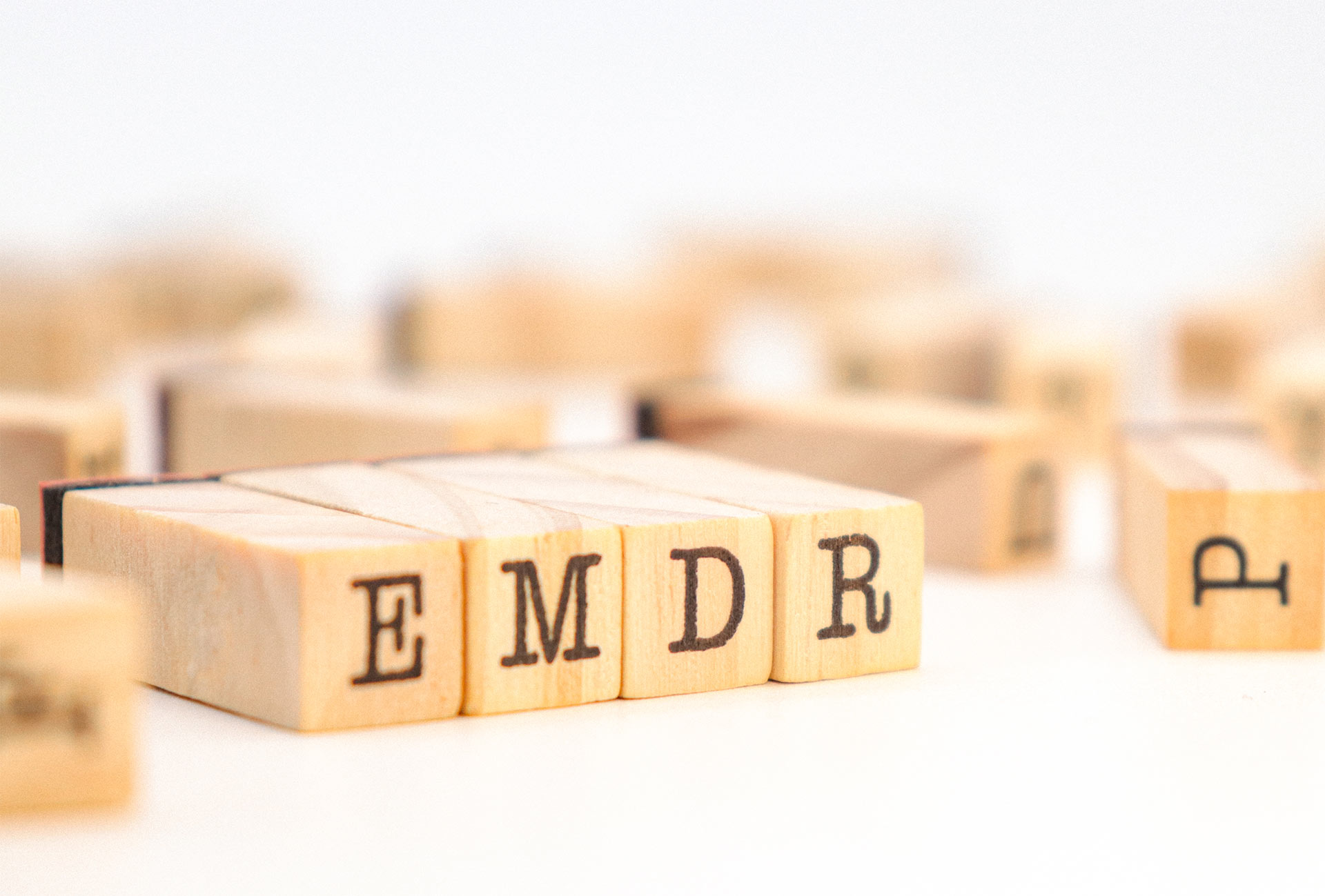Moving Past Your Past Trauma: EMDR for Emotional Healing
Do you struggle with depression that seems to have no clear cause? Do you feel like you’re often on edge or hypervigilant?
Do you feel disconnected from others or struggle with relationships? Are you easily overwhelmed by your emotions or physical sensations? Do you constantly relive past traumatic events?
Do you experience intense anxiety or fear that seems tied to a past experience?
Do you avoid certain places, people, or situations because they remind you of past trauma? Have you tried other therapies without lasting results?
Do you want to stop feeling overwhelmed by your past?
If you answered “yes” to any or all of these questions, keep reading to learn more about EMDR therapy at Valor Lakes. It may be the key to helping you move beyond past trauma and into a brighter, more hopeful future.
What exactly is EMDR?
EMDR is an evidence-based therapeutic approach originally developed to treat trauma and Post-Traumatic Stress Disorder (PTSD). Over the years, it has expanded to help people overcome a range of emotional challenges, including anxiety, depression, and negative belief systems. EMDR helps you reprocess traumatic memories in a way that reduces their emotional charge, allowing you to move forward in life without being stuck in the past.
Unlike traditional talk therapy, which often involves talking through painful memories in depth, EMDR uses bilateral stimulation, typically in the form of guided eye movements, to help your brain reprocess the emotional aspects of these memories. This process helps to decrease the emotional intensity tied to these memories, leading to lasting healing.
Who Can Benefit from EMDR?
EMDR can be effective for a variety of people dealing with different life challenges. While it is most known for helping those who have experienced trauma, it can benefit anyone who is stuck in negative belief cycles or struggling the emotional aftermath of difficult life events.
Here’s who might find EMDR particularly helpful:
- Trauma Survivors – If you’ve experienced or witnessed traumatic events such as abuse, accidents, natural disasters, death or combat, EMDR can help you process your memories and reduce their emotional impact.
- PTSD Sufferers – People with symptoms of PTSD—such as intrusive memories, hyperarousal, avoidance behaviors, and negative mood changes—often find EMDR to be highly effective in reducing these symptoms.
- Veterans – Those who have experienced the trauma of war or combat may find EMDR particularly helpful in processing those memories and easing the psychological wounds of military service. At Valor Lakes, we specialize in helping veterans through a range of issues stemming from their time in service to our country.
- Anxiety and Depression – Many people suffering from anxiety or depression benefit from EMDR, especially if their symptoms are linked to past traumatic experiences or negative thought patterns.
- Those Willing to Process Emotions – EMDR involves confronting distressing memories, so it requires an openness to experiencing and processing emotions. This is essential for those who are ready to explore and work through their past pain.
- Those with a Stable Support System – A solid support system is essential to the healing process. Having friends or a supportive family can help you navigate the emotional work that comes with EMDR therapy.
What Happens During an EMDR Session?
EMDR is a unique form of therapy in that it’s not just about talking through your problems—it’s a structured and collaborative process that integrates both cognitive and physical techniques to facilitate healing. If you’re considering EMDR ta Valor Lakes, here’s what you can expect:
1. Initial Assessment – When you first begin working with an EMDR therapist at Valor Lakes, the initial phase involves a thorough assessment. Your therapist will discuss your history and gather information about past traumas, as well as how those experiences are impacting your life currently. This helps the therapist understand your needs and tailor your sessions to be most effective for you.
2. Building Trust – The therapeutic relationship is crucial in EMDR. We focus on creating a safe and supportive environment where you feel comfortable and able to share your deepest emotions and memories. Building trust is the foundation of successful therapy, and your therapist will ensure that you feel heard, validated, and respected throughout the process.
3. Preparation Phase – Before diving into the reprocessing of traumatic memories, your therapist will work with you to build coping skills and emotional regulation techniques. This could include relaxation exercises, grounding strategies, and mindfulness practices. These tools are essential to manage any distress that might arise during the sessions.
4. Targeting Memories – In EMDR, the focus is on specific memories that continue to cause distress in your life. Once you have developed the necessary coping skills, you’ll work with your therapist to identify particular traumatic events or negative beliefs that are holding you back. Your therapist will help you associate those memories with more positive and empowering beliefs, creating a new lens through which you view yourself and the world around you.
5. The Desensitization Process – This is the core of EMDR. During the desensitization phase, you will recall the traumatic memory while simultaneously engaging in bilateral stimulation, often through guided eye movements. The goal is to reprocess the memory, reducing its emotional intensity. As you focus on the memory and move your eyes back and forth, your brain begins to integrate the memory differently, decreasing the distress it causes.
6. Processing Emotions – It’s normal to experience a range of emotions—such as sadness, anger, or even relief—during this phase. Your therapist will be there to help guide you through these feelings without becoming overwhelmed. This is a gentle, compassionate process where you will be supported in making sense of your emotions and finding peace.
7. Integration of Positive Beliefs – As you process traumatic memories, your therapist will work with you to reinforce a positive belief that you want to adopt moving forward. This could be a belief like “I am safe now” or “I am worthy of love and happiness.” The goal is to replace the negative belief associated with the trauma with one that supports your healing and growth.
8. Closure and Reflection – At the end of each session, your therapist will help you reflect on your experience, bringing closure to that particular phase of your healing. You’ll also have the opportunity to practice grounding techniques to ensure that you feel emotionally stable before leaving the session.
9. Ongoing Support – We know healing doesn’t happen overnight. Your therapist will be there to offer ongoing support. As you move through the process, you may be given homework or additional exercises to help reinforce what you’ve worked on. Your therapist will also evaluate your progress, adjusting as necessary to foster continued healing.
10. Progress Evaluation – Periodically, you and your therapist will review your progress, assessing changes in your symptoms and emotional responses. This helps guide future sessions and any adjustments to your treatment plan.
Is EMDR Right for Me?
EMDR is not for everyone, so your therapist will carefully assess whether it’s the right approach for you and your unique situation. Some people, particularly those who are struggling with active substance abuse, suicidal ideation, or self-harm, may need to stabilize these issues before beginning EMDR. Your therapist may refer you to an alternate service offered here at Valor Lakes before walking with you through the deeper healing process of EMDR. However, many people can still benefit from the preparation phase of EMDR, which focuses on developing coping skills before moving into the deeper work of recalling and reprocessing memories.
Write a new chapter in the story of your life
Trauma may be a chapter in your story, but it doesn’t have to define who you are. At Valor Lakes, we’re here to support your healing journey, helping you take control and become the author of your future. If you’ve been struggling with the effects of trauma, PTSD, anxiety, or depression, EMDR may be the key to unlocking a new chapter of healing and personal growth. The process is personalized, empowering, and compassionate, giving you the tools you need to process painful memories and reduce their emotional impact.
If you’re ready to begin your journey of healing, our team is here to support you every step of the way. Reach out today to find out if EMDR can help you reclaim your peace, joy, and overall well-being.
If you’re ready to take the next step or have questions about our veteran-focused outpatient programs, don’t hesitate to contact us.
Your path to recovery begins today.

